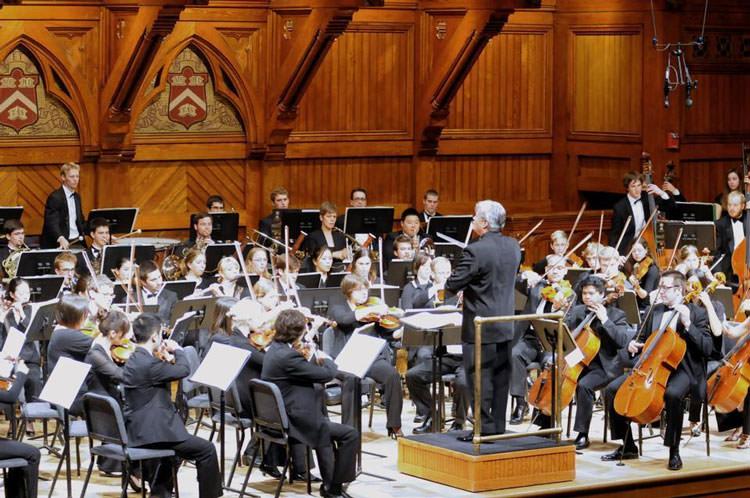Impressive benefits of listening to classical and other genres of music
Nowadays, more and more people seem to be appreciating classical music and other music genres for their many qualities, and potential health benefits.
Below, we’ve compiled an assortment of research findings and studies to prove what music lovers have known for decades - that music can have a wonderful impact on our health, both physical, and mental.
1. Decreased Blood Pressure & Better Heart Health

Now, we’re all aware that different music styles have a different effect on our heart rhythm. The heavy thud of metal music will impact one differently than, say, a light ballad. This is the reason why workout trainers use high energy tunes during their workouts, to stimulate the heart rate of participants,
A study conducted by the University of California actually went one step further in proving this. The study asked participants to solve a stressful, high-difficulty arithmetic problem, and then sit for a few minutes. Some of the participants were left to sit in silence, while others were exposed to several music genres.
The study found that, in order to truly decrease blood pressure, and regulate the heart rate, the music needed to have no lyrics, and as few changes in rhythm as possible, as well as maintain an even volume. The research also indicated that the music that repeated certain musical patterns was more calming for participants, and of all music genres experimented on, classical music came out on top, checking all these boxes.
2. Combats Depression

Now, we don’t go throwing such claims around lightly, since depression is a serious and debilitating mental health issue. Yet a study by the University of Oaxaca, Mexico comes forward with fascinating findings.
The study pitted traditional psychotherapy for patients with depression against music therapy. The observation stretched over a period of eight weeks, at the end of which, the study found that the patients who were exposed to classical music showed fewer depressive symptoms than the psychotherapy group.
The study went on to suggest that patients with low or moderate depression symptoms might be helped, and could keep these symptoms under control through music therapy. Thanks to its relaxing, uplifting qualities, classical music was the likeliest type of music to have a positive impact on patients.
3. Can Relieve Pain

Another study monitoring the effects of music on depression, as well as physical pain, found that this particular genre does, indeed, have restorative effects on patients suffering from chronic pain.
While the study found little difference between its two music trial groups, it did definitely show that patients exposed to music therapy were experiencing less pain and depression, than those who were not.
These findings are complemented by the results of another study that exposed ICU patients recovering from surgery to music. This study proved that classical music did indeed have a restorative and pain-relieving effect on the patients, both on a physical and a psychological level.
What’s more, both studies found that the patients who were given music therapy reported feeling stronger, and more apt for recovery than those who were kept in silence.
4. Improves Focus and Cognitive Function

A quick look around music platforms will show you that a lot of people seem to think classical music is the best type of listening for focusing, and improving brain power. If you search playlists for studying, lectures, or reading, you will be met by an astonishing amount of compilations that throw around various big names like Mozart, Bach, or Debussy.
But did you know that there is actual scientific proof to support such reasoning? A study by the University of Rome looked at the effect of music on the brain while participants were asked to focus. The research found that subjects had an easier time focusing (and improved cognitive function) when there was classical music playing in the background, than when there was silence.
Indeed, many people report listening to classical music while working, as well as finding other types of music (particularly “angry” music or lyric music) disruptive.
5. Reduces Stress

This can be also traced back to the heart rate improvement we talked about earlier - since classical music regulated the heart rhythm, and stress is related to intense heart-beat, it stands to reason that classical music would also relieve stress.
A study from the University of London exposed pregnant women to classical music, and monitored their levels of stress and anxiety. The study divided the pregnant women into two categories: a music group, and a group that did daily relaxation practices.
After twelve weeks of self-monitoring through questionnaires, the research showed that the women in the music group were reporting less anxiety than they had at the beginning of the trial. On the other hand, women who practiced daily relaxation showed no such change, suggesting that classical music was responsible for the drop in anxiety in the music group.
6. Could Lead to Better Sleep

Are you having trouble falling asleep at night? Is your sleep disrupted, and you tend to wake up often during the night? You’re not alone. Due to an increase in daily stress levels, screen exposure, and poor sleep schedules, more and more adults are experiencing difficulty getting enough rest.
The good news is classical music could be able to help with that, also. The Sleep Foundation suggests that it might all be a matter of setting up the right pre-bedtime routine, and they also suggest including classical music in that routine.
A recent study exposed participants to 45 minutes of music before sleep, and found that the majority of them reported improved sleeping from the very first night of the study. Even more interesting was the suggestion that the more exposure to classical music participants had, the better their sleep was, suggesting a cumulative effect. So the next time you’re tossing and turning, crank up a little Mozart, and see where that takes you. It’s worth a shot.
7. Increases Productivity

We’re all familiar with the age-old trope seen in countless films and TV shows, where we see surgeons cranking up some evocative classical music in the operating room. Well apparently, there seems to be some scientific truth to that.
A study conducted by the University of Maryland exposed eight radiologists to classical (Baroque) music in the reading room, and asked them to rank their levels of stress, productivity, and overall composure. The study came up with overwhelming evidence that the radiologists felt more productive, and perhaps conducted better, more accurate readings when exposed to classical music.
So regardless if you’re a doctor going in for brain surgery, or you’re just struggling to meet your deadlines at work, some classical music might be just what the doctor ordered for improved productivity.
8. Makes You Happy

Music lovers of all genres will argue that their music does make them happy, regardless of what the science might say. But fans of classical music actually have research to back such a claim.
Two acclaimed neuroscientists at the University of Central Florida have been teaching a course to suggest that classical music actually has the power to increase the dopamine release inside your grain, thus making you happier, and overall more content. At the same time, research also suggests that gray matter preferences are in alignment with those of the person, so the same may well be true of other musical genres, as long as you personally identify and connect with them.
9. Helps you Connect with the World

Lastly, a 2013 study looked at the many reasons why people all over the world enjoy listening to music. It found that among other reasons, people like listening to music because it makes them feel more socially connected.
In other words, we need music to integrate us into society and make our lives easier, and due to the universally amiable nature of classical music, it’s safe to say that it’s one of the genres most likely to help with that.
Because of the benefits explored above, classical music helps us be more well-rounded human beings, and thus makes social integration easier. It also means that people who listen to classical music are less likely to enter conflict, and have an easier time interacting and connecting with other human beings.
That being said, you really need some Mozart in your life.
Classical music and other music genres have a place in everyone’s life, whether it’s playing in the background as you cozy up with your favorite novel, on while you work, or even the soundtrack of your workout.
In which case, you’re in luck. Radio Art offers a host of 40 musical channels specializing in classical music. It’s the perfect listening to boost productivity, reduce day-to-day anxiety, and even grant you a healthier heart. So do yourself and your body a favor, and put on some classical music today!
Our website respects the intellectual property rights of creators, as well as the music rights of authors and composers.
The musical works are provided solely for the private use of each visitor/user
and any further exploitation of them in any way is prohibited without prior permission from AUTODIA and EDEM Rights.
Radio Art is fully approved by the Greek Collective Rights Organizations | AUTODIA | EDEM Rights
Copyright © RABS - Radio Art Broadcasting services Ltd. All rights reserved.
The Art of Relaxing & Meditation Music
Privacy Policy & TOS








